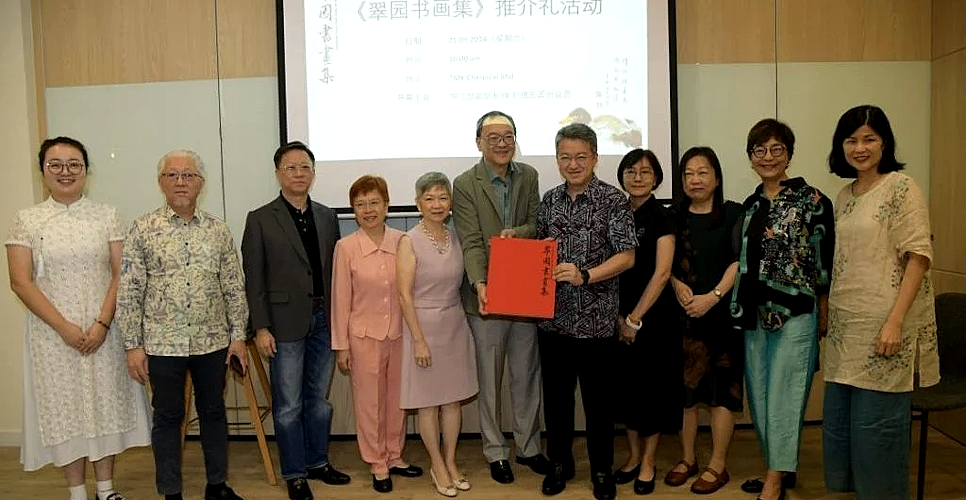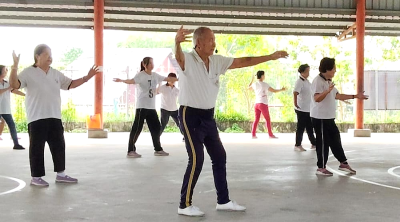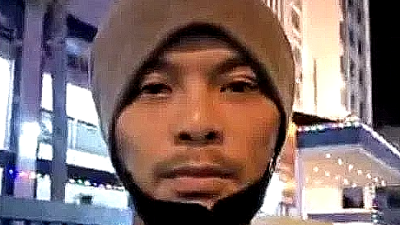
Last Saturday, I was invited to the launch of “A Collection of Peng Shih Lin’s Artwork” by the respected late headmaster.
To me, the launch event was more like one that paid tribute to the great talent of a memorable teacher, an outstanding calligrapher-painter, and a mother.
Born Peng Yu Zhen, with the pseudonym of Cuiyuan, the late Madam Peng not only had an exemplary record in the education sector, she was also exceptionally talented in Chinese calligraphy, painting, chess, musical instruments and poem-writing, as I came to know through reading the prefaces in “A Collection”.
The Collection has been compiled by Peng’s son Leong Chao Seong, and wife, as a means of expressing their love for his late mother.
I read of the following on social media not long ago: “We used to think that AI could help us sweep the floor and wash the dishes so that we could have time for artistic creation. But now AI has learned to do just that, while we still have to keep doing the house chores!”
So, I couldn’t help but tried to enlist the help of ChatGPT to write me Chinese seven-character regulated verses, to see how amazing this ChatGPT thing is in creating a poem that justly depicts the life of Peng and filial piety of her children.
And the result was stunning!
I know you all will be amazed by the speed and immense power of AI, but to me, I can hardly put on a smile. As a matter of fact, I have grown somewhat worried about the future of humanity!
Are you going to tell me that our world no longer needs poets, writers, composers, and painters? How monotonous our planet will be if this becomes a reality? Will our human brains still have any worth if all artistic creations could be commissioned to the machines?
This is an issue that warrants our serious consideration.
After her retirement, Peng spent all the experiences and knowledge she had gathered throughout her earlier life devotedly on artistic creation, leaving behind a rich legacy of Chinese calligraphy works and paintings. The creative value and depth of her works, to me, far supersede the lifeless machines!
As a media practitioner, I have been thinking these past few years how the future holds for the media industry and humankind.
Filthy-rich social media platforms have been easily dominating public consensus like uncontrollable beasts by allowing manipulative comments to proliferate on their respective platforms to influence and control how the audience should think.
As if that’s not enough, their bosses even collude with political ambitionists to fabricate lies and misinformation using deepfake technology in a wicked attempt to topple a democratically elected government through people power!
Pager explosions in Lebanon once again testify that technological advancement is increasingly pushing human society towards the edge of the cliff.
What next after pagers and walkie-talkies? Will the handphones we hold in our hands or the airplanes cruising above us be exploded likewise in future?
We almost can see global instability, social conflicts and confrontation intensifying. The human race is poised to pay a hefty price for the immorality of social media tycoons!
Scams, money-laundering, prostitution, drug trafficking, gambling, bullying and even social unrests have become the nature of social media, as they amass immeasurable wealth created by people blindly jumping into the Internet bandwagon.
While enjoying enormous wealth in the name of speech freedom, these people are largely free from any social obligation.
At the onset of the Internet craze, governments foolishly pledged to exempt online content from government scrutiny, granting these social media platforms the final say in the virtual world while creating their own rules of the game.
The emergence of Internet and social media has promised humanity infinite possibilities and unparalleled convenience, and indeed many have made lucrative gains from such phenomenon.
So, people started at first to bask in the feel-good ambience of sophisticated communication technology, declaring unreservedly that digitalisation is the way to go!
That said, governments’ responsiveness to social media’s destruction has been far outpaced by the advancement in technology, while the masses naively idolise it.
Some have seized the opportunity to profusely fatten their own wallets by way of fearlessly harnessing the seemingly uncontrolled Internet black hole to ravage the virtual world with utmost depravity, upending all known human values in so doing.
And this is our common karma!
In an era which could be both the best and the worst of times, the continued existence of media is all the more essential. When people find it increasingly hard to tell the truth from lies, they need more than ever media that is responsible, credible and beaming with positive energy.
Today, governments across the globe have come to this realisation. But such revelation has arrived a little too late, as the masses have yet to – or even at all get to — visualise such eventuality. Any restriction imposed by the government will therefore be perceived as repressive move against freedom of expression.
When I hit out at media channels profiting from profane and violent contents in the past, I was dismissed as a conservative, outdated media worker.
As a matter of fact, I have never opposed to web traffic per se, but the approach some have adopted in news handling for near-term interests. I am always convinced that any deviation from journalistic ethics will not take us any further.
While I admit that web traffic is important for our sheer survival, there is always the bottomline. For the media industry, all we need is traffic generated from positive energy, as this will fortify and consolidate our existential value.
In this Internet-crazy area, people no longer care whether something is right or wrong. They just follow the herd blindly in hope of reaping attention and thus, traffic.
Talking about web traffic, I would like to take this opportunity to introduce a Malay influencer Khairulaming.
You might wonder who this Khairulaming is, that even New Zealand’s prime minister Christopher Luxon asked for a lunch meeting with him during his visit to Malaysia, and wrote to thank him.
When he was in New Zealand, Khairulaming not only shared Malay food with his followers, he also introduced to them the wonderful sights and food of New Zealand, and this drew the attention of the New Zealand PM.
This young man with a bachelor’s degree in mechanical engineering had an absolutely inspiring experience in starting his career, having failed multiple times initially.
However, he never gave up, but kept trying until success came his way at the height of the coronavirus pandemic.
Founder of Sambal Nyet, Khairulaming does not win over his followers by denigrating other people, and has remained humble even if he is now a successful entrepreneur and social media influencer.
During a media interview, Khairulaming encouraged people not to stop imagining, because their dreams could one day be fulfilled.
“From imagination to a dream, this dream will eventually materialise if we keep working hard, day after day, and year after year!”
Khairulaming’s Facebook now boasts 1.8 million followers, another 1.5 million on X, 4.1 million each on TikTok and Instagram, plus 237,000 on YouTube.
Khairulaming’s story tells us that we will eventually succeed if we do things seriously with a positive attitude, focusing on the creation of high-quality cooking videos and harnessing the power of the Internet to promote his sambal sauce.
The same goes with media operation. So long as we dedicate ourselves to creating good content, play our role as dutiful watchdog and hold out a hand where it is needed, we can be an inextinguishable beacon of light for society.
Our world is by no means perfect. As such, we need to accept the reality that our world is far from being perfect.
The media will need to uncover positive and uplifting stories from a heap of ugly ones, to confront the many negativities.
If a media company chooses to follow the pack instead of holding fast to journalistic professionalism, the world will sink even faster!
In an era which could be both the best and the worst of times, the continued existence of media is all the more essential. When people find it increasingly hard to tell the truth from lies, they need more than ever media that is responsible, credible and beaming with positive energy.
It is my wish that on September 28 World News Day, more people will get to see the important role played by the media, and show their support for any good media by way of advertising, subscribing to print or electronic newspapers, registering for paid membership, or donating.
ADVERTISEMENT
ADVERTISEMENT








































